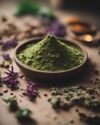
The Banyan tree is an evergreen fig which is known in Hindu mythology as the wish-fulfilling tree and the tree of life and fertility. Every year, in many parts of India, the festival of Vat Purnima¹ is observed. During those three days, women fast and pray for the well-being of their husbands, as they walk around a chosen Banyan tree and tie a thread around its trunk. This festival is associated with the legend of Savithri.
The legend of Savithri
The noble king Aswapati reigned over Madra, a prosperous country. As the years rolled by, worry gripped his mind, for he had no children. With the aim of seeking a boon, Aswapati undertook austerities and prayed to the goddess Savithri to appear before him. After eighteen years of penance, one fine day the goddess Savithri appeared and offered to grant the king a favor.
When Aswapati asked for many sons worthy of his lineage, the goddess Savithri smiled and said that he would soon beget a daughter of great energy. Saying so, she disappeared. Soon, the king's wife had a daughter, and he named her Savithri in honor of the goddess who had bestowed the gift.
When she came of age, Savithri resembled a celestial being, but she also possessed such a burning splendor that no man came forward to marry her. Ultimately, her exasperated father Aswapati told Savithri to find a partner for herself. Taking her father's words as a command, Savithri set forth on a journey to find her life partner.
In a distant forest, Savithri came upon a handsome young woodcutter. He was graceful in limb, tall, broad-shouldered, gifted with the strength of mad elephants, and free from fear or affliction. He had sparkling eyes and great sensitivity. It was love at first sight.
This story is from the {{IssueName}} edition of {{MagazineName}}.
Start your 7-day Magzter GOLD free trial to access thousands of curated premium stories, and 9,000+ magazines and newspapers.
Already a subscriber ? Sign In
This story is from the {{IssueName}} edition of {{MagazineName}}.
Start your 7-day Magzter GOLD free trial to access thousands of curated premium stories, and 9,000+ magazines and newspapers.
Already a subscriber? Sign In

A Flower from THE HEAVENS
November 14 is Children's Day. This year, SARA BUBBER brings to you a world of forests, magical flowers, festivals, and some animals you may have never seen.

Meeting Phenomenal Women
The author, CHITRA BANERJEE DIVAKARUNI, is interviewed here by TARA KHANDELWAL and MICHELLE D'COSTA about her books on mythology, like The Palace of Illusions, which is a retelling of the Mahabharata from Draupadi's point of view, and The Forest of Enchantments, which is a retelling of the Ramayana, from the eyes of Sita. And there's The Last Queen, which is about Rani Jindan's life.

HERBAL TOOTH POWDERS: Rediscovering Ayurveda's Natural Secrets
SRAVAN BANDA presents a natural herbal tooth powder, offering a holistic approach to oral hygiene, harnessing the power of medicinal herbs.

The Dance of Light and Shadow Lessons from the Dolomites
ALAIN DESVIGNE explores the Dolomites, listed as a UNESCO World Heritage Site in 2009.

FINDING OUR WAY
A Polynesian Explorer's Journey of Discovery

The First Imprint: Understanding PTSD
CHRISTIANNA DEICHMANN is the Director of Education at the Association for Pre and Perinatal Psychology and Health (APPPAH), where she educates both professionals and parents on fostering the most nurturing environments for welcoming new life into the world.

The Tipping Point
In this final conversation of the series, J. FREDERICK ARMENT continues to talk with CHRISTINE JONES about promoting peace in the world.

UNLOCK YOUR POTENTIAL
Take The Brighter Minds Path To Cognitive Development

The Intrinsic Goodness of the Heart
DAAJI shares some thoughts on heartfelt acceptance and all it has to offer. He says, \"It is the heart's intrinsic goodness that allows us to accept everything as part of us.

How Does Fear Affect Our Roles as Mothers? - Neelam Shivhare explores some of the great ancient texts of India on motherhood, compares the behavior of Kaikayi and Yashoda
Neelam Shivhare explores some of the great ancient texts of India on motherhood, compares the behavior of Kaikayi and Yashoda, and realizes the importance of removing fear from our hearts in order to nurture our children.For young women like myself, who are future mothers, I trust we are on the path of becoming selfaware and brutally honest with ourselves. We are creative beings, never forgetting the gifts with which we have been bestowed— the love and tenderness, natural instincts, and intuition to feel the right path. It all lies in the mysterious meanderings of the heart. Are we really listening to our hearts, or confusing the bombarding information on social media with reality?